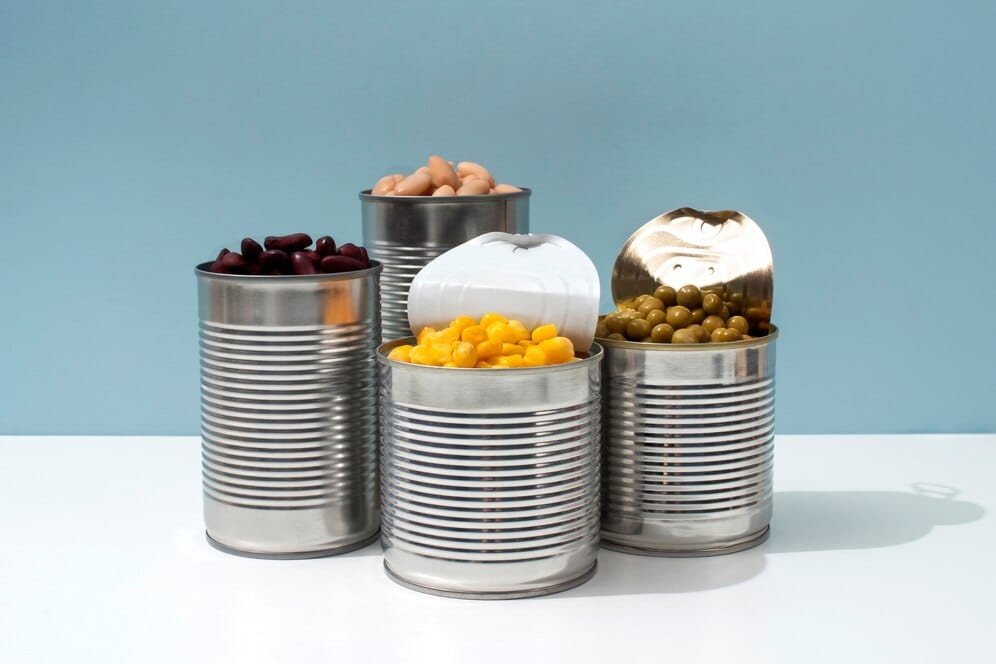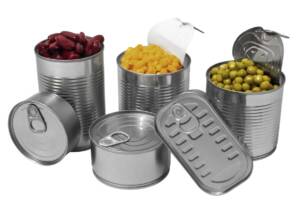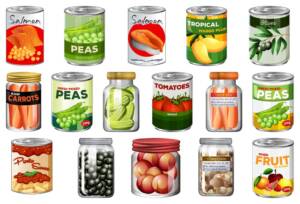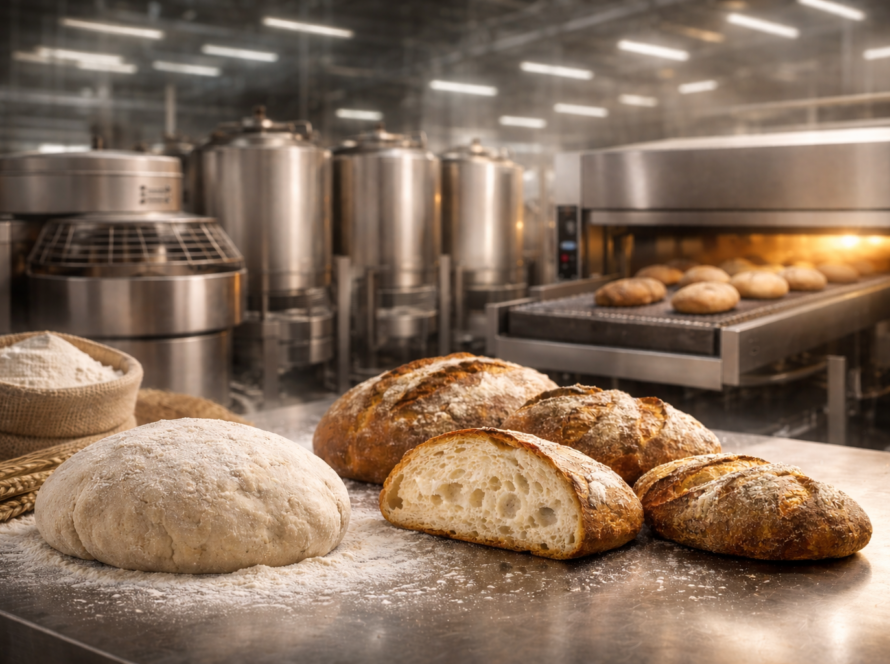
The canned food industry is one of the most prominent sectors in the world of food industries. It meets the needs of consumers in terms of convenience and long shelf life.
In this article, we will discuss the details of a canned food factory project, providing examples of modern technologies used in this field.
Why is a canned food factory project an innovative idea?
In light of the rapid developments in the world of industry, a canned food factory project has become a promising investment opportunity. This industry is not only profitable, but also contributes to providing diverse food options for consumers. Canned food is a practical solution to preserve food, which helps reduce food waste and increase food security.
Steps to establish a canned food factory project
1-Feasibility study
Before starting to implement a canned food factory project, a comprehensive feasibility study must be conducted. This study includes market analysis, identifying competitors, and understanding customer needs. Production costs, required resources, and revenue expectations must also be considered.
2-Selecting the location
Selecting the location is one of the essential factors in the success of this project. The site should preferably be close to raw material sources and should be easily accessible for distribution teams.
3-Manufacturing Technology
The technology of the canned food industry is constantly evolving. The canned food factory can use technologies such as automation in production lines, which increases manufacturing efficiency and reduces waste. Modern packaging technologies can also be used to ensure the quality of canned food.
Challenges facing the canned food factory project
Despite the opportunities available, this project can face some challenges. The most prominent of these challenges are:
Intense competition
Competition is increasing in the canned food market, requiring investors to think of innovative ways to excel. The canned food factory project should focus on providing high-quality and diverse products.
Safety and quality requirements
The canned food factory must adhere to food safety standards. Strict protocols must be implemented to ensure product quality and meet regulatory standards.
Benefits of a canned food factory project
The benefits of a canned food factory project are represented in several aspects:
Increased sales
By producing a variety of canned food, a canned food factory can achieve high sales and attract various categories of consumers.
Diversity of food options
The canned food project contributes to providing diverse food options, which meets the different needs of consumers
Types of Traditional and Innovative Canned Food Projects
When considering a canned food factory project, we need to consider the different types of canned food that can be produced. There are two main types: traditional canned food and innovative canned food. Here we will review some examples of each.
Traditional Canned Food
Traditional canned food is one of the most popular options available in the canned food market. These types include:
Fruit Canned Food: This category includes canned fruits such as peaches, pineapples, and apples. These canned food uses simple canning techniques such as boiling and filling in sugar solutions. These products are popular in the markets and provide an excellent way to preserve fruits for long periods.
Vegetable Canned Food: Such as green beans, corn, and peas. These vegetables are processed using cooking and sterilization methods, which ensures their safety and shelf life.
Meat Canned Food: This is one of the oldest types of canned food. Meats such as chicken and beef are canned after processing and storing in metal cans, which provides a rich source of protein.
These types are stable and have a steady market demand, making a traditional canned food factory project a reliable option.
Innovative canned food
In contrast, a canned food factory project can invest in producing innovative cans that meet the needs of modern consumers. Here are some examples:
Ready-to-eat cans: This category is very popular, as it contains complete meals ready to eat, such as pasta with sauce or rice with proteins. Pressure packaging techniques are used, ensuring that the flavor and quality of the ingredients are preserved.
Vegetarian cans: With the increasing popularity of plant-based diets, a canned food factory project can offer options such as quinoa and various vegetables in ready-to-use cans. These cans meet the needs of consumers looking for healthy and environmentally friendly options.
Functional canned food: Such as cans that contain probiotics or fiber. These products are not only delicious, but also have additional health benefits, making them attractive to a wide range of consumers.
Organic canned food: This is an ideal option for those interested in healthy foods. A canned food factory project can focus on producing organic canned food that follows strict standards in terms of agriculture and production.
Future Trends in the Canned Food Industry
As consumer trends evolve, the canned food industry is moving towards innovation and diversity. A canned food factory project can benefit from several trends:
Environmental Sustainability
Sustainability is one of the most important current trends. Consumers are moving towards products that are made in ways that preserve the environment. A canned food factory project can adopt biodegradable or recycled packaging materials, which enhances the appeal of products.
Smart Packaging
Smart packaging technology provides users with direct information about the safety of the product, such as acidity levels and temperature. This can be part of a canned food factory project to improve the consumer experience and increase confidence in the products.
Using Natural Ingredients
There is a growing demand for products that use natural ingredients without preservatives. A canned food factory project can focus on providing natural and healthy options, which will attract a larger segment of consumers
Health Trends and Their Impact on a Canned Food Factory Project
The canned food industry is witnessing a significant shift towards healthy options, which is a great opportunity for a canned food factory project. Consumers are increasingly interested in healthy, nutrient-rich foods, prompting companies to produce products that contain natural and organic ingredients. A canned food manufacturing business can capitalize on these trends by developing a variety of healthy canned foods, such as sugar-free or plant-based protein canned foods. By catering to the needs of lifestyle-conscious consumers, canned food businesses can strengthen their market position and attract a wider range of health-conscious customers.
A canned food factory project is a promising investment opportunity in the food market. With proper planning and the use of modern technologies, investors can achieve great success. For those wishing to enter this field, ProNano Food Industry Consulting Company provides professional support to help them implement their projects efficiently. Consulting experts can be the difference between success and failure, do not hesitate to contact ProNano Company to benefit from its expertise in this field.
Read more about the role of technology in the food industry



